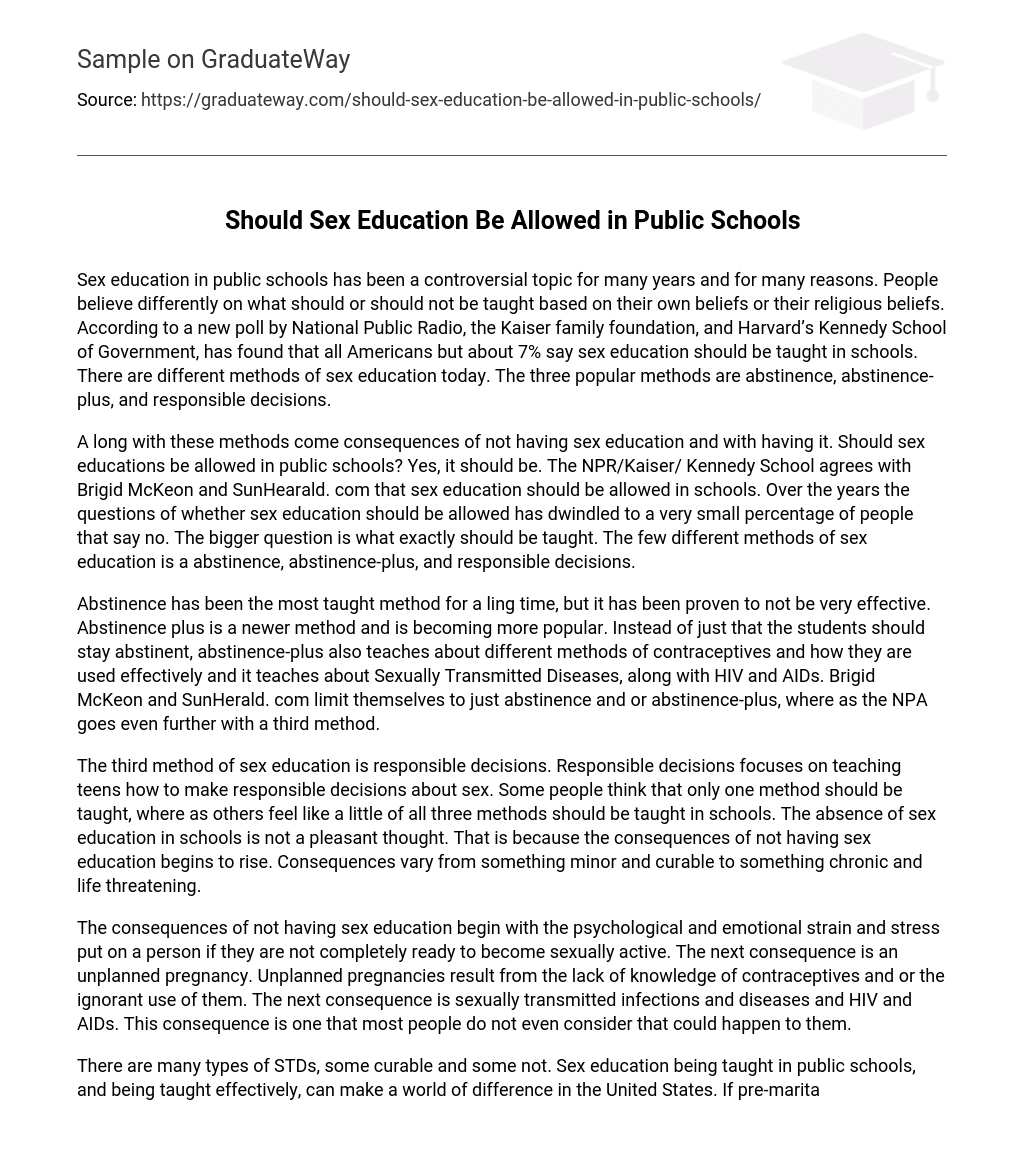Sex education in public schools has been a contentious issue due to differing beliefs and religious views. However, a recent survey by National Public Radio, the Kaiser Family Foundation, and Harvard’s Kennedy School of Government reveals that almost all Americans (excluding about 7%) back the inclusion of sex education in school curricula. Presently, three main approaches to sex education are commonly employed: abstinence-only, abstinence-plus, and responsible decision-making.
Sex education is seen as essential in public schools because of the potential negative outcomes that can arise from both its absence and presence. The NPR/Kaiser/Kennedy School, Brigid McKeon, and SunHerald.com all advocate for incorporating sex education in schools. While there are still some who oppose its implementation, the discussion regarding whether it should be allowed has greatly diminished. Currently, the focus lies on determining the curriculum, with options like abstinence, abstinence-plus, and responsible decision-making being taken into account.
The conventional method of promoting abstinence as the sole means to avoid pregnancy and STIs has been deemed ineffective. However, a more recent technique known as abstinence-plus is becoming increasingly popular. This approach not only encourages students to abstain from sexual activity but also educates them on different contraceptive methods and their proper usage. Additionally, it provides information regarding Sexually Transmitted Diseases such as HIV and AIDS. While Brigid McKeon and SunHerald.com primarily concentrate on abstinence and abstinence-plus, the NPA introduces a third alternative.
The topic of sex education for teenagers revolves around educating them about responsible decision-making in relation to sexual activity. There is a ongoing debate on whether schools should concentrate on one approach or include all three. Nevertheless, the absence of sex education in schools is worrying as it results in an increase in negative outcomes, ranging from minor and treatable problems to serious and potentially fatal conditions.
Not receiving sex education has multiple consequences which include psychological and emotional strain, unplanned pregnancy due to lack of knowledge or improper use of contraceptives, and the risk of sexually transmitted infections including HIV and AIDS.
Sexually transmitted diseases (STDs) come in different forms, some of which can be treated while others cannot. Nevertheless, the situation in the United States can be significantly improved through effective sex education in public schools. In addition, reducing the social acceptance of pre-marital sex would also have a significant impact on improving this situation. By increasing the frequency of teaching abstinence, abstinence-plus, and responsible decision-making in schools, there is hope that rates of negative consequences will decrease. As a result, this would lead to a happier and healthier nation with fewer unwanted pregnancies.





